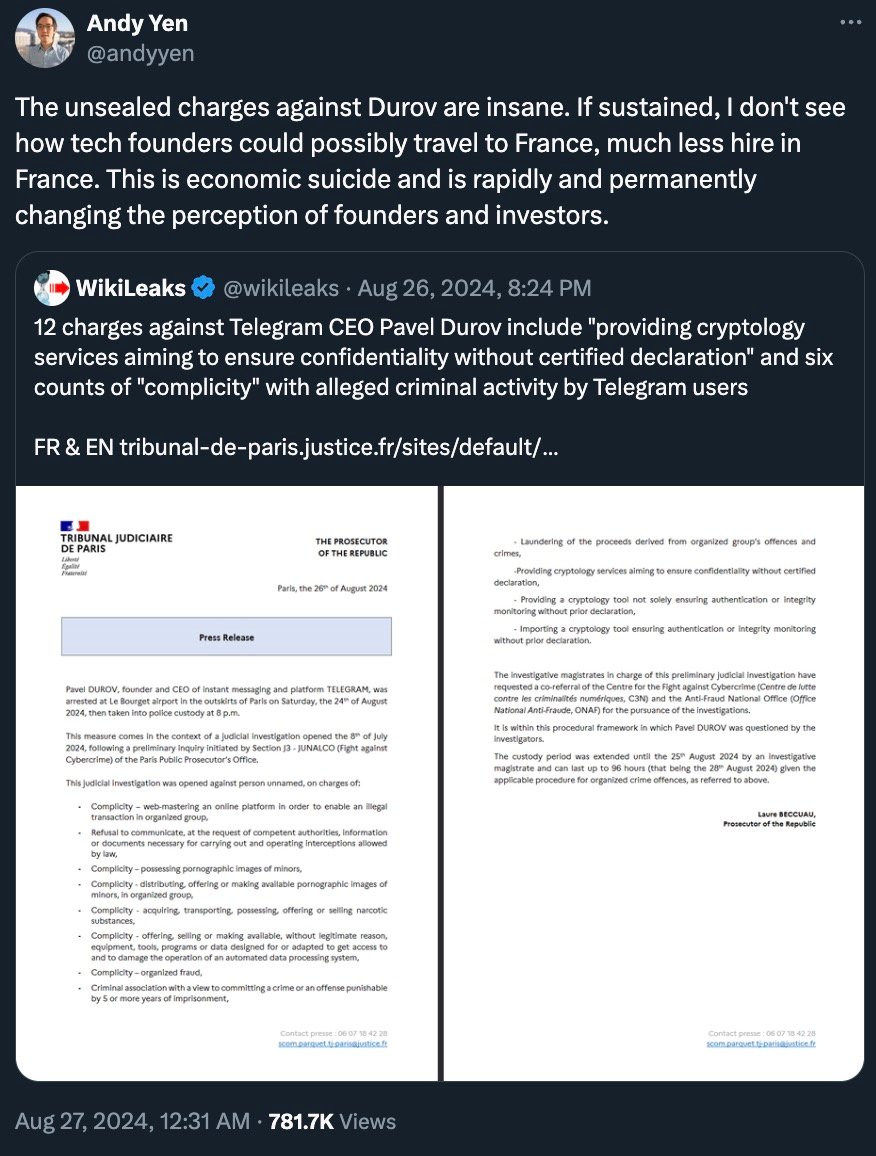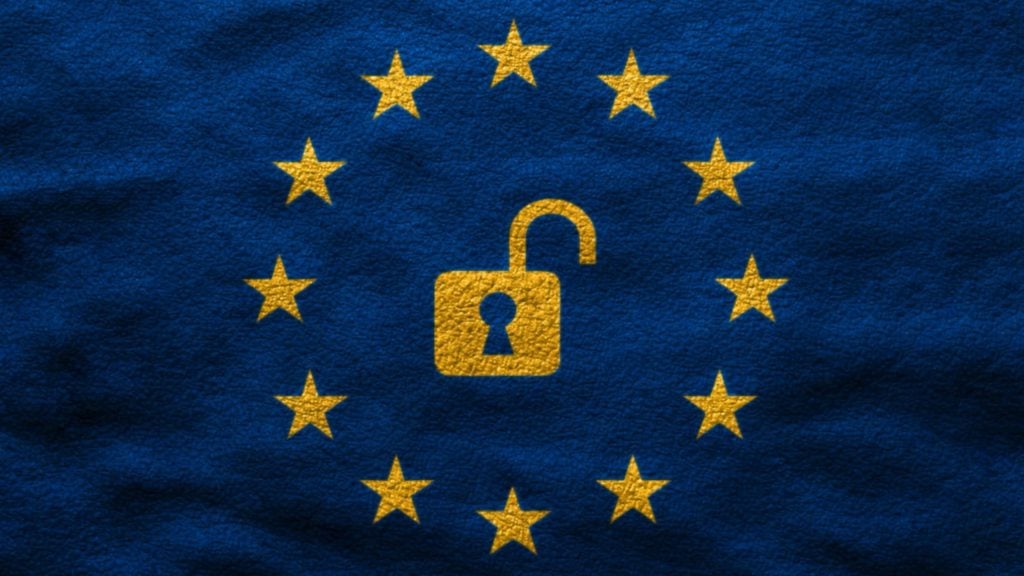Andy Yen, CEO of Proton – which develops a suit of encrypted, privacy-focused services including Proton Mail – has spoken out against France’s charges against Telegram’s Pavel Durov, slamming them as “insane.”
Yen commented on the developments in the context of the position France has put itself in, as a place for tech companies – either in terms of doing business there, or merely for their founders traveling to the country.
In the wake of Durov’s arrest, and in light of the nature of the charges pressed against him, the perception of France as a desirable destination for the tech industry is changing “rapidly and permanently” as far as investors and founders are concerned – and not in a good way.

France has committed “economic suicide” – that is how Yen describes the situation, in addition to the damage done to its image as a free country.
He makes note of the fact that even though Durov faced problems in Russia, and refused to comply with the demands of the authorities there several years ago, France turned out to be the one to arrest him.
“Imagine the outrage,” Yen continues, if the situation was reversed – if Russia arrested the CEO of a major US tech company, for example, Mark Zuckerberg.
(The outrage would most certainly include branding Russia as an “authoritarian” country, but something of the kind is entirely missing in legacy media reporting about France, in the context of the scandalous arrest in Paris.)
Yen expressed another concern regarding France’s decision to subject a platform operating on servers in other countries to its jurisdiction, making the charges extrajudicial.
“The only French connection (when it comes to jurisdiction over servers) is that Durov made the mistake of obtaining French nationality,” the Proton CEO writes.
Some of those who commented on Yen’s reaction made an interesting observation that, at least up to the point it was posted, very few other founders of privacy-friendly and encrypted services had raised their voices against the arrest and the charges.
And they, among other things, accuse Durov of providing “cryptology services aiming to ensure confidentiality without certified declaration.”



